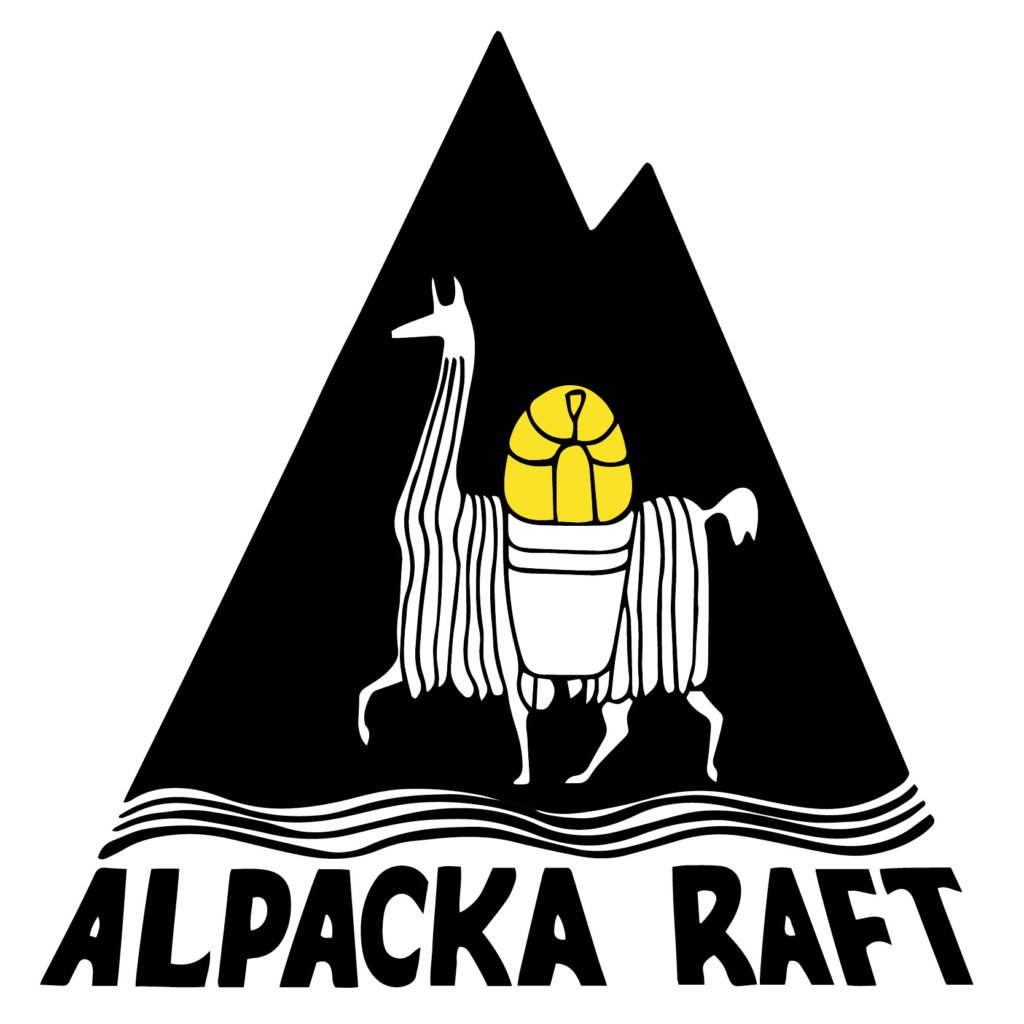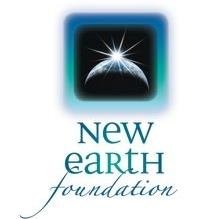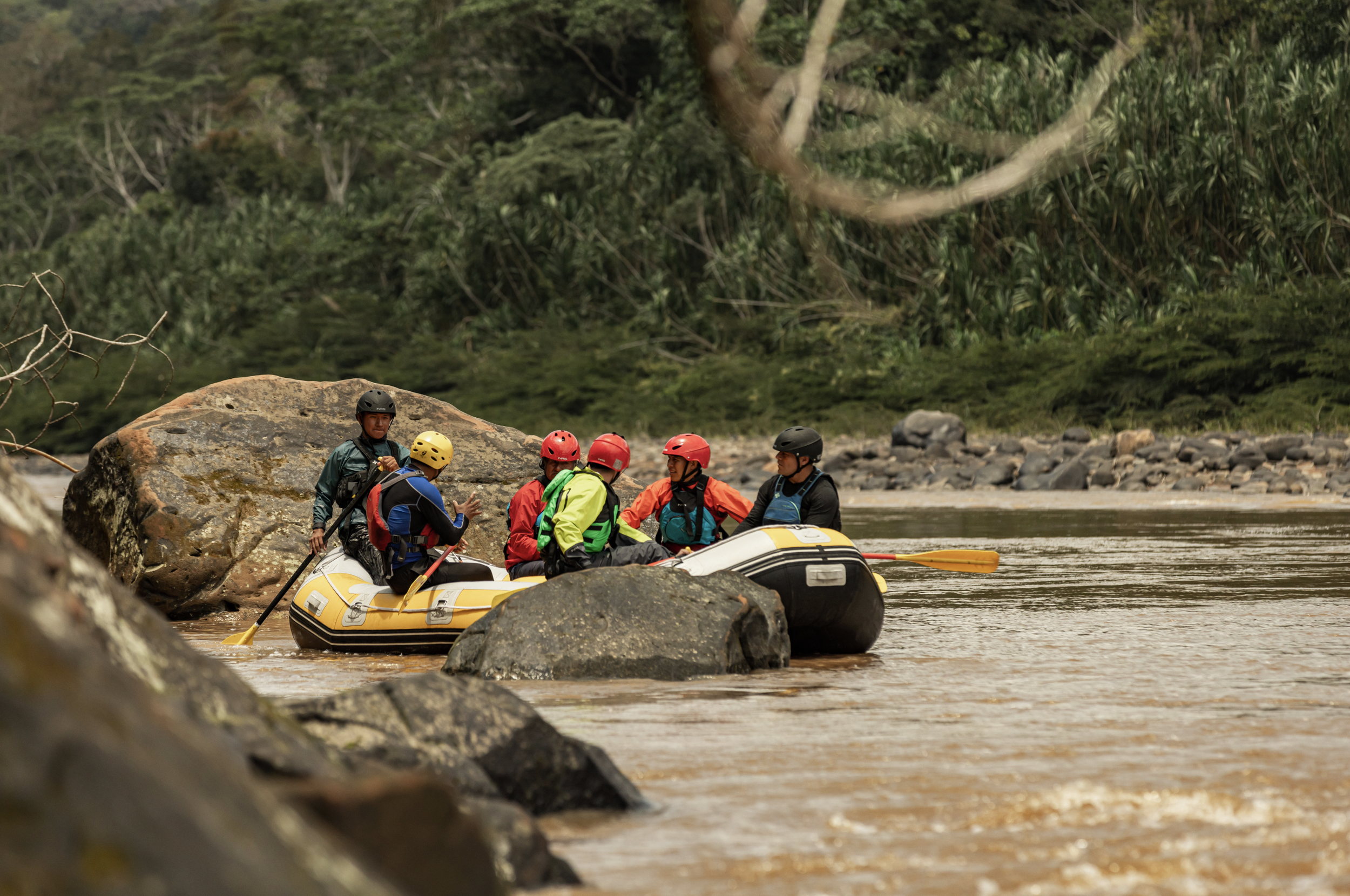
Amazonian RiverS INITIATIVE
- Bolivia -
A cultural exchange program training indigenous youth in whitewater paddling, leadership, and documentary filmmaking to support them in protecting their ancestral lands and the threatened rivers of the Bolivian Amazon
View a trailer to a film Ríos to Rivers is producing about the initiative
Guardians of Rivers and Life
The Initiative
The Chepete-Bala mega-dam proposal threatens one of the most biologically diverse regions in the world: Madidi and Pilon Lajas National Parks in the Bolivian Amazon. Through intercultural exchange programs in the Beni River Basin, native youths from North and South American river basins gather in solidarity to learn, share, paddle, and document these sacred rivers together. Through this program, participants receive intensive training in leadership building, athletic whitewater kayaking and rafting training, and stewardship and advocacy curriculums. Groups not only bear witness to the unparalleled beauty and biodiversity as they travel the threatened tributaries of the Beni River but actively participate in the conservation efforts of the region by gaining critical skills that can help share their voices with the world.
Led by non-profit Ríos to Rivers and local indigenous grassroots organization, The Commonwealth of the Beni River Basin Indigenous Communities, this program is designed to empower and train a cohort of indigenous youths in three realms: whitewater kayaking and rafting, river stewardship and advocacy, and documentary filmmaking.
This trip marks the launching of the first-ever indigenous-managed whitewater sports club, which Bolivian youths plan to use as a way to cultivate local river stewards, pave the way for adventure tourism, and protect their sacred rivers. The program also cultivates a group of communicative and film-savvy indigenous advocates dedicated to addressing the many issues their communities face. Most importantly, however, this first program lays the foundation to continue this important work in supporting local indigenous communities in their efforts to protect this land.
Program Launch
October, 2022
Watch a music video that the students of last year’s program created as a creative approach to addressing the issues that their communities are facing:
Help us to continue this program by donating to Ríos to Rivers with the designation “Bolivian Amazon”
Background
The race to stimulate Bolivia’s economy and invest in massive infrastructure projects was exacerbated by Covid-19. But how can you quantify the value of ecosystem services provided by protected nature? The communities of the Beni River Basin are seeking strategies to cultivate local economic resilience that can benefit from natural capital. While ecotourism in the region has been growing in recent years, whitewater recreation (adventure rafting and kayaking), is not yet utilized. There is no economic activity (aside from fishing) that so directly depends on a clean and free-flowing river.
Indigenous peoples support 80% of the world’s remaining biodiversity. If current plans go through, many of the natural and irreplaceable riches of the Madidi National Park and Pilon Lajas will be irreversibly destroyed. This exchange program is an opportunity for representatives of different rooted river cultures to know the richness of these unique rivers from source to confluence, to bear witness to the threats to their integrity and existence, and to find a platform to raise the voices of their communities.
WHY IS THIS INITIATIVE IMPORTANT?
Covering an area roughly the size of Israel, and home to over 163,000 species of fauna and flora, Madidi National Park (MNP) is recognized by a Wildlife Conservation Society (WCS) study as perhaps the most biologically diverse national park in the world. Nevertheless, it is also one of the most threatened protected areas in the world. Illegal gold mining operations are blossoming into government-approved concessions along the length of the Beni and Tuichi Rivers within the park. But by far the most existential threat is by the biggest industrial undertaking in South America – the Chepete and Bala hydroelectric dam proposals.
If built, these dams would displace over 5,000 indigenous peoples living in the region. Their reservoirs would inundate a large portion of MNP, as well as its neighboring biological and indigenous reserve, Pilon Lajas. The two parks are a confluence of cultures and ecosystems and are home to indigenous communities of Tacana, Moseten, Uchupiamona, Leco, Tsimane, and Ese Ejja nations who are the constitutionally-recognized owners and stewards of the territory.
The Amazonian Rivers Initiative is a project of
With generous support from




















